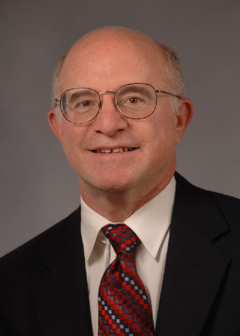Our Science – Janik Website
John Edward Janik, M.D.
 |
|
|||||||||||||||||||
Biography
Dr. Janik received his M.D. from The Ohio State University College of Medicine in 1977 and completed clinical training in internal medicine at Baylor College of Medicine Affiliated Hospitals and Hematology/Oncology training at Case Western Reserve University. He joined the NCI in 1989 at the Biological Response Modifiers Program in Frederick, MD. In 1999 he was appointed the Co-Director, Clinical Trials Team in the Metabolism Branch.
Research
View Dr. Janik's Current Clinical Trials
The Clinical Trials Team conducts clinical trials, based on hypothesis-driven preclinical findings. Clinical investigations of receptor-directed therapies of hematologic malignancy, lung and colon cancer vaccines, and agents that alter checkpoint controls in immune regulation are the focus of our group.
Receptor-directed therapies have focused on the development of novel treatments for patients with T-cell non-Hodgkin's lymphoma. Monoclonal antibodies have produced significant improvements in the management of patients with B-cell non-Hodgkin's lymphoma and it is anticipated that similar improvements in T-cell malignancies can be expected. We are currently investigating four receptor-directed approaches in patients with T-cell malignancies based on preclinical animal studies investigated in the Branch. Antibodies that target CD25, CD52, CD30 and CD2 are being evaluated. The mechanism of these agents appears different and combinations of these antibodies and their addition to chemotherapy regimens are important areas for investigation.
A second area of investigation is the immunologic manipulation of patients with cancer. The development of vaccine targeting mutated oncogenes is a major focus of activity. Despite the hope that vaccines will be effective in cancer therapy most studies have failed to demonstrate significant tumor regressions with vaccination alone. The normal host mechanisms that control the development of autoimmune disorders may prevent the expansion of tumor-specific T cells. Strategies to overcome these checkpoint controls may allow for expansion of the tumor reactive T-cell populations and enhanced antitumor activity. One such approach targets CTLA-4 and antitumor activity has been seen in patients with non-Hodgkin's lymphoma. Other targets include TGF-ß, IL-2 mediated apoptosis, and T regulatory cell populations.
These studies are conducted in collaboration with John Morris, Thomas Waldmann, Jay Berzofsky, Wyndham Wilson, Jorge Carrasquillo, Elaine Jaffe, and Stefania Pittaluga.
This page was last updated on 7/15/2008.

